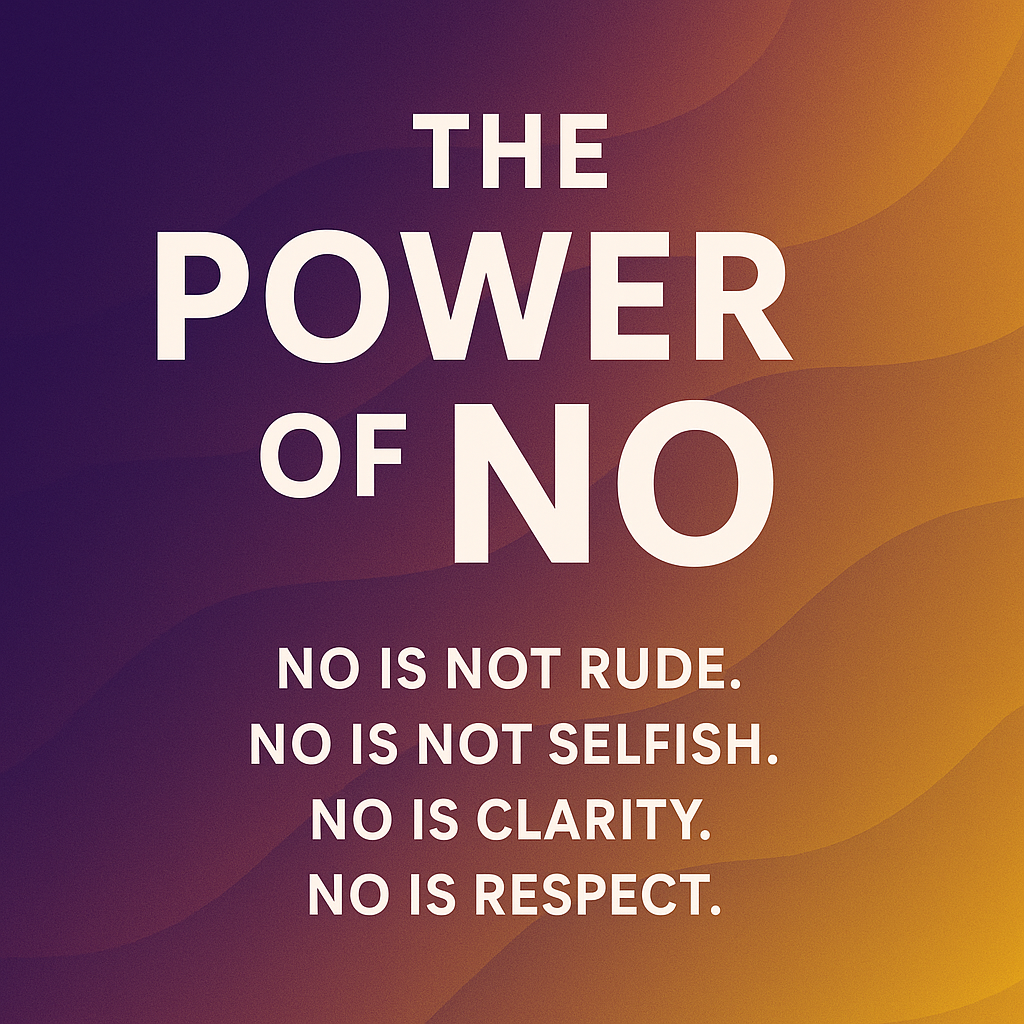
The word no holds power. It’s direct, honest, and respectful.
Yet too often, I see people trip over themselves trying to avoid it. Instead of simply saying no or no thank you, they invent flimsy excuses that are awkward and almost instantly disprovable.
Why do we do this? Sometimes it’s fear of disappointing others. Sometimes it’s the desire to soften the rejection. But let’s be clear—when we make up reasons, we don’t protect feelings. We undermine trust. People can sense when they’re being given a story, and it damages credibility far more than a polite, straightforward response.
The truth is, there’s nothing wrong with saying:
“No, or "No thank you, but thank you for asking.”
That one phrase is respectful, kind, and complete. It communicates appreciation for the invitation or request, while drawing a clear boundary. No scrambling for excuses. No white lies. Just a confident, honest answer.
We don’t owe the world elaborate explanations for every decision. In fact, clarity is often the kindest response. Saying no without apology or excuse creates space for healthier conversations and stronger relationships.
So next time you’re tempted to over-explain, stop. Take a breath. And remember: one of the most empowering, respectful things you can say is the shortest of sentences—No, but thank you for asking.
💬 How do you handle saying no?
